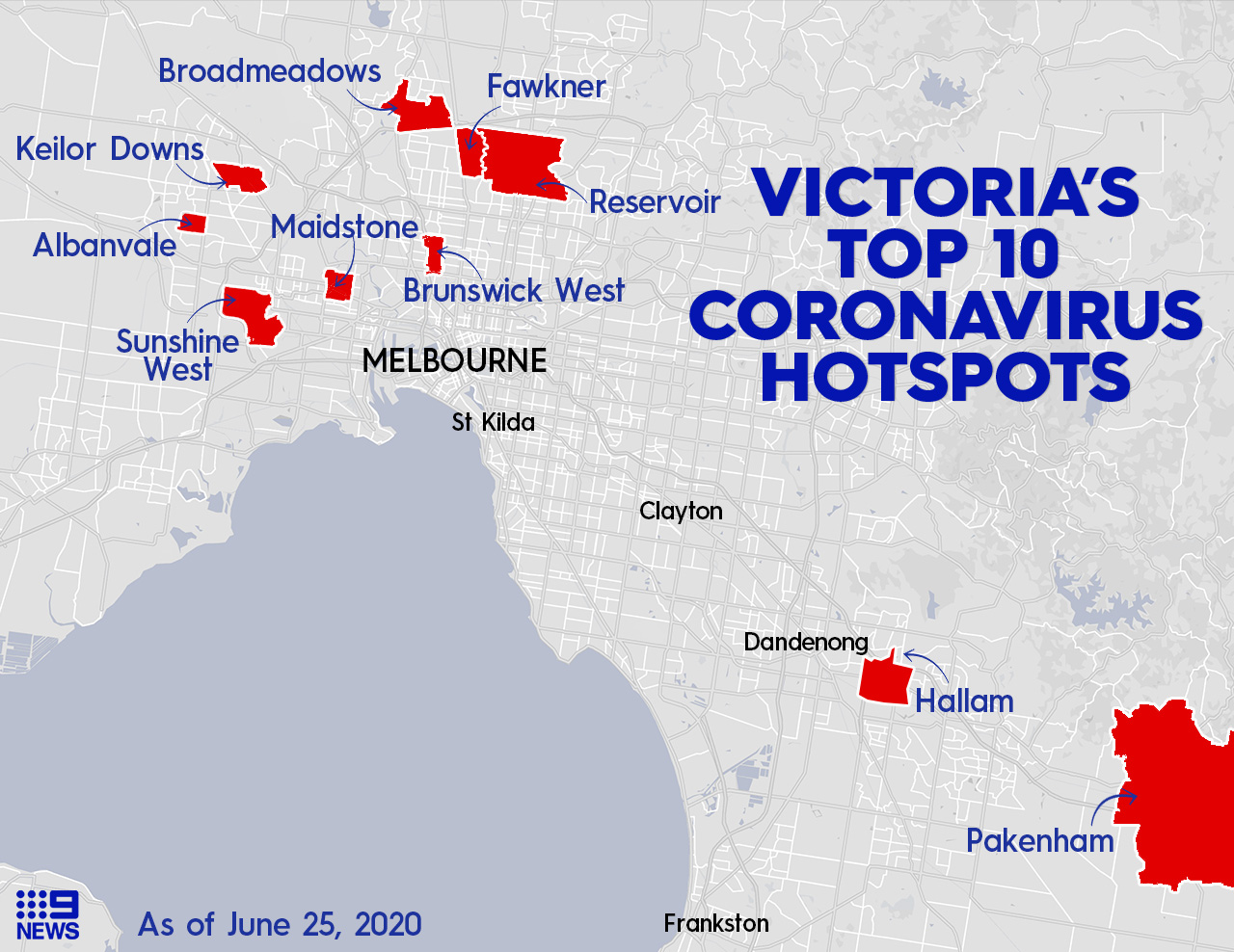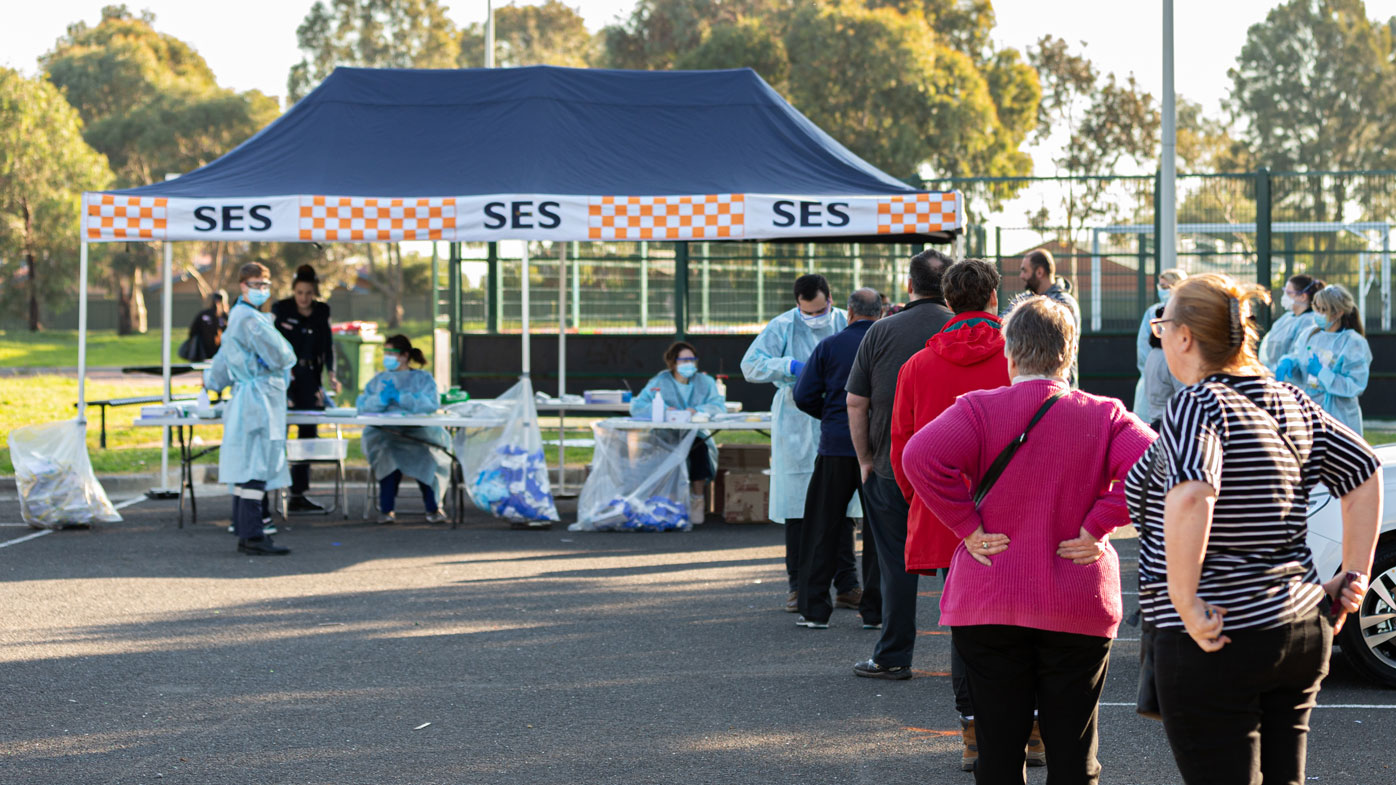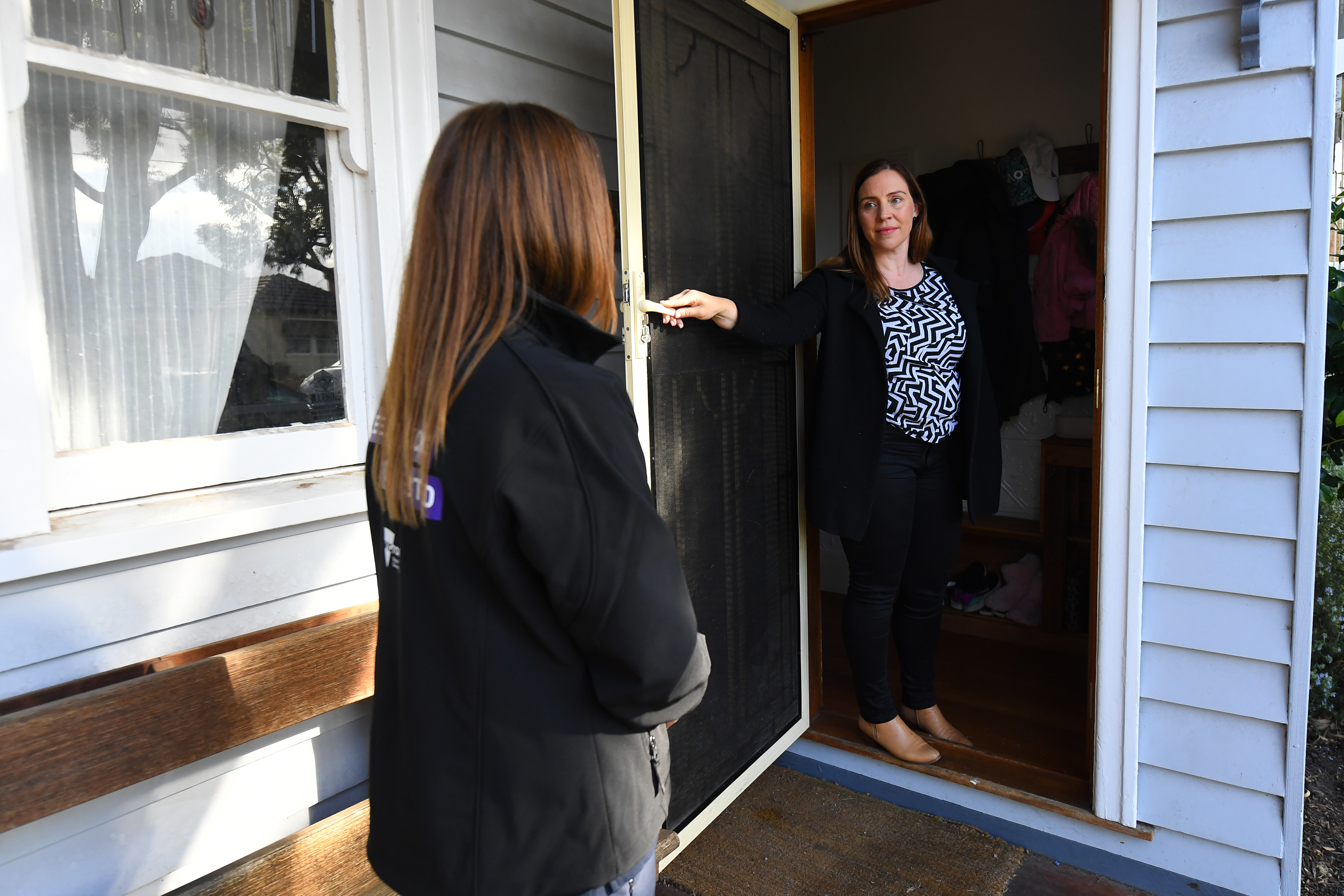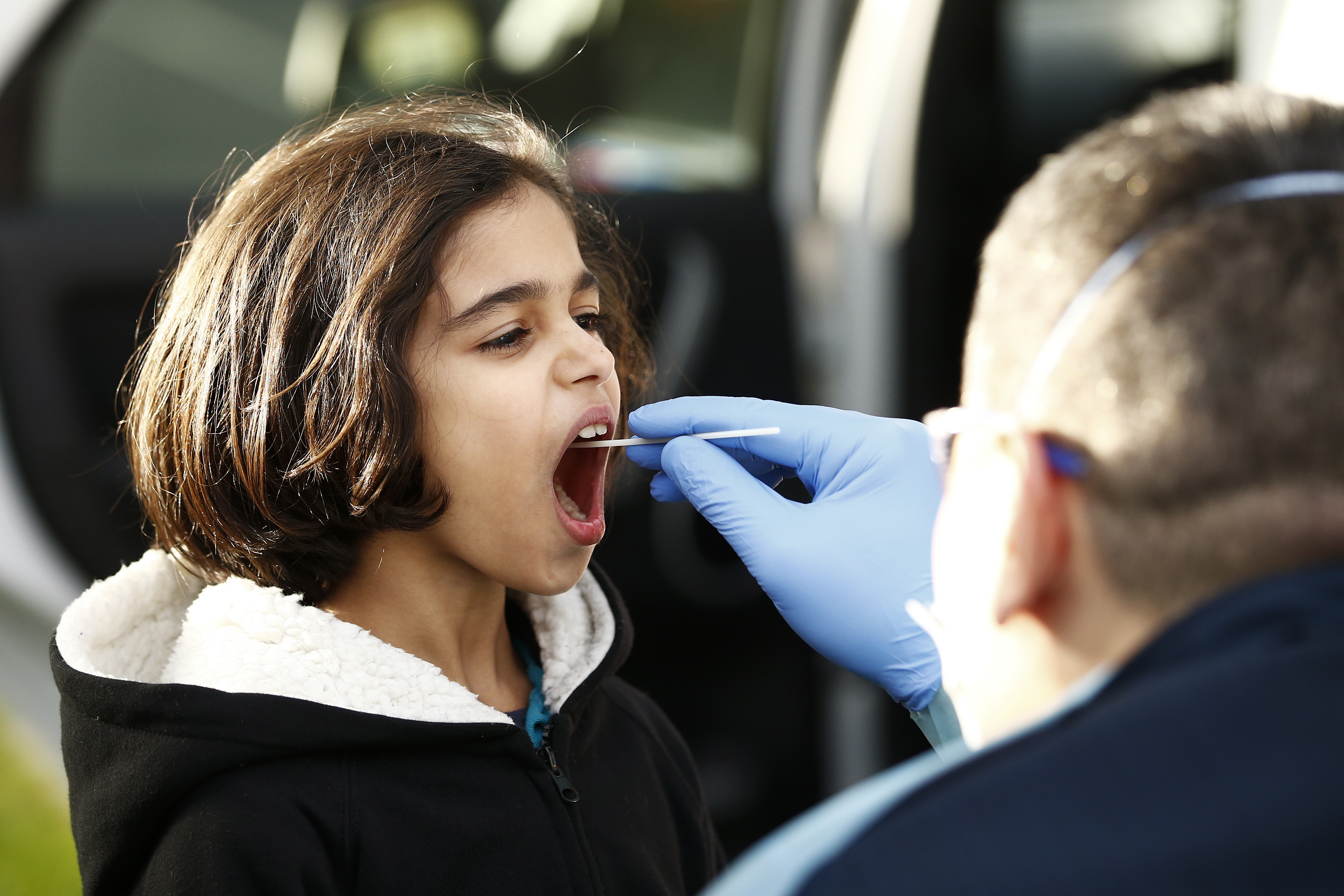Health officials say while a new spike in coronavirus cases in Victoria is of "genuine concern", it is not part of a "second wave".
There were 49 new cases in the state yesterday and 41 on Saturday, with 10 Melbourne suburbs identified as hotspots.
Deputy Chief Medical Officer Dr Nick Coatsworth told Today it is hoped new "unprecedented" measures which include taking a new saliva-only test door-to-door will get the outbreak under control.
READ MORE: New coronavirus test for worst-hit Melbourne suburbs amid growing spike

"If anything, worldwide we're still in the first wave and in Australia we're just seeing a localised outbreak within a city," Dr Coatsworth said.
"This is the outbreak situation we knew we were likely to have with the amount of COVID-19 that's around in the world at the moment."
He said the term "second wave" dates back to the 1918 Spanish Flu outbreak which infected 500 million people globally and saw a decrease in cases before a surge.
Dr Coatsworth said the new saliva tests are "nearly as accurate" as the nasal swab but are more tolerable.
READ MORE: Where to get tested for coronavirus in Victoria


"The nasal swab and throat swab remains the best specimen we can get but if people really don't want to have that specimen we'll do the saliva test and the Doherty Institute and Melbourne public health labs are monitoring the results very closely to make sure they're comparable," he said.
He said news that 30 per cent of Victorians returning to the state from overseas to hotel quarantine have refused any test for COVID-19 had not had an impact on the outbreak.
https://twitter.com/VicGovDHHS/status/1277377937851940866?ref_src=twsrc%5EtfwNew rules introduced mean anybody who won't be tested now have to stay in quarantine for another 10 days.
"The 14 days quarantine is so effective that even amongst those people who refused a test on exit there hasn't been any onward trans mission of COVID-19," Dr Coatsworth said.

He urged people not to point fingers at others, amid details a third of the cases in the new outbreak in young adults in their 20s and 30s - but he reminded that group to stick to the rules.
"We need to engage young people and remind them that even though they're less likely to be severely affected, they can be, and most importantly passing on to their parents or grandparents could be fatal so it is critically important that young people - I'm talking about young adults - practice the same social, physical distancing and excellent hand hygiene we have talked about for so long," he said.
Source: https://ift.tt/3icX3cz
Comments
Post a Comment